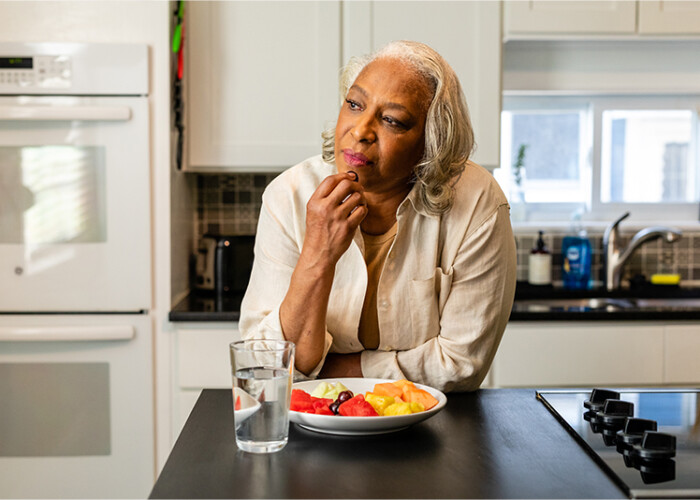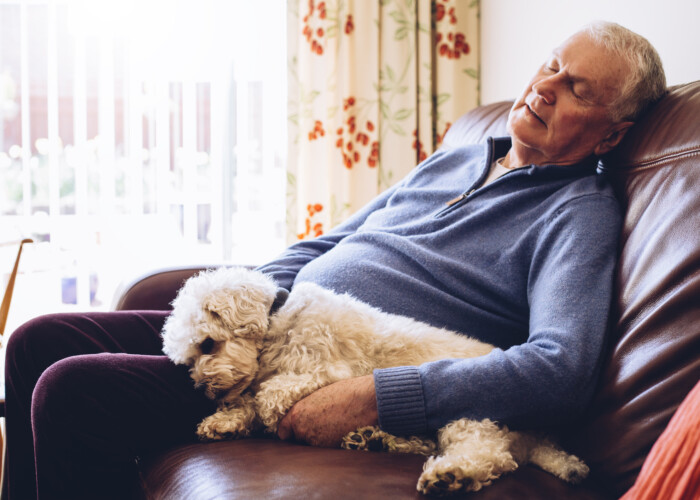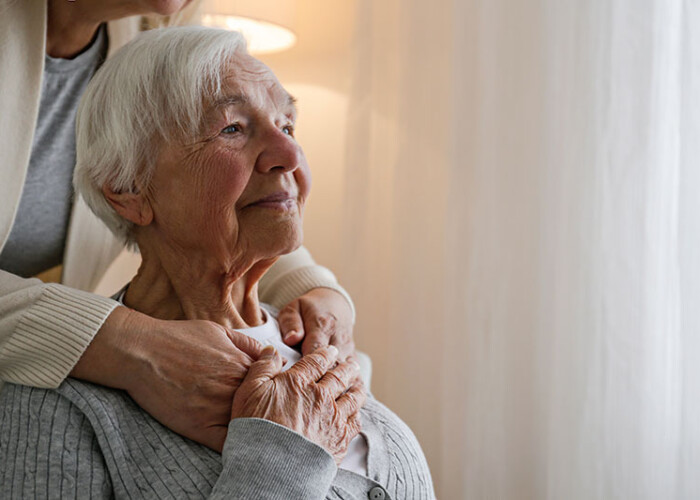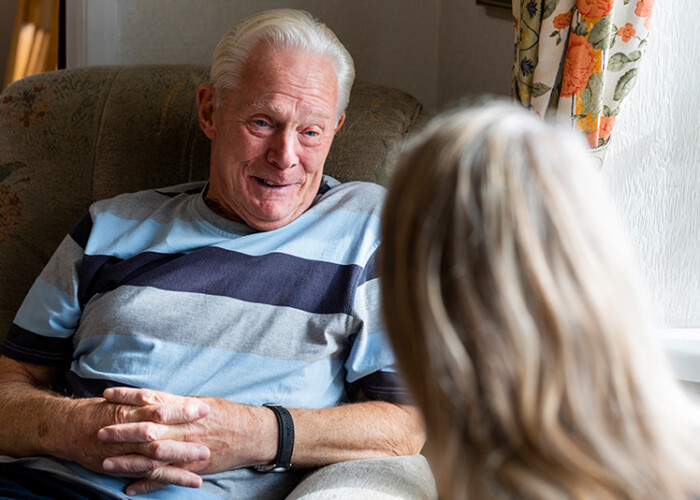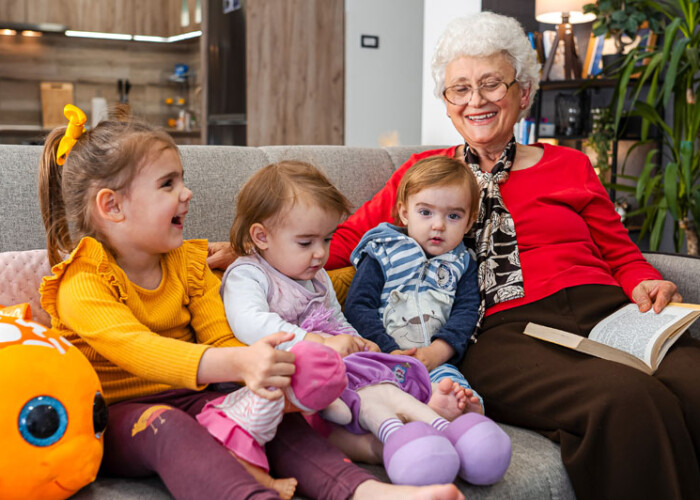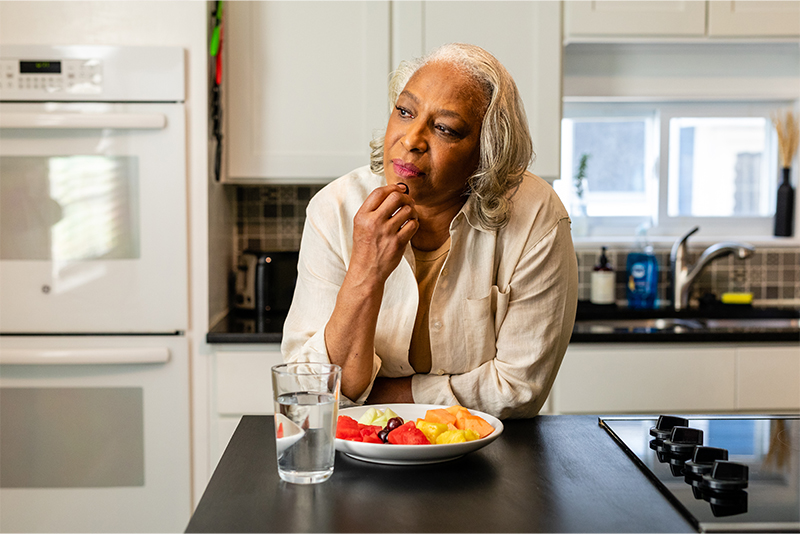Aging In Place
Why Won’t Mom Eat? It Might Just Be an Eating Disorder.
If you’ve been wondering, “Why won’t Mom eat?” it’s important to know the signs of an eating disorder.
Changes in appetite and weight are often considered a normal part of aging. But if you find yourself asking, “Why won’t Mom eat?” it’s important to consider all possible reasons. While factors like medication side effects, dental concerns, or reduced mobility can certainly play a role, there’s another potential cause that often goes unnoticed: eating disorders in seniors.
Read This Before Welcoming a New Caregiver Into the Home!
Welcoming a new caregiver into the home is a much smoother process with these tips.
The big day is here—your dad’s first day with his new caregiver! If your family is feeling a mix of relief, uncertainty, and even a little anxiety, you’re not alone. Welcoming a new caregiver into the home is a big adjustment, not just for the person receiving care, but for the entire family. The good news is that with some preparation, you can help set the stage for a positive, comfortable transition.
Conversation Starters and Tips for Introducing the Idea of Home Care to Your Parents
If introducing the idea of home care to an older loved one feels uncomfortable, try these tips and conversation starters.
If you ever had to have “the talk” with your parents about those awkward pre-teen topics, you might remember how uncomfortable it was. Now, the roles have shifted, and it’s your turn to bring up an equally difficult subject: discussing concerns about their well-being and introducing the idea of home care.
What Is Senior Social Frailty and Who Is at Risk?
It’s easy for older adults to slip into spending too much time alone, which can lead to senior social frailty.
Not so long ago, we were all taking precautions to protect ourselves and loved ones from the spread of COVID-19. For older adults, who were especially vulnerable, this meant isolating at home and avoiding social interactions. While these measures were necessary for safety, they created a new norm of solitary living for many seniors—one that has persisted long after the height of the pandemic and is causing a condition known as senior social frailty.
Yes, There’s Help for Chronic Fatigue in Older Adults
Learn how to recognize and better manage chronic fatigue in older adults.
Some mornings, the snooze button is your best friend—offering a few extra precious moments of rest. But for many older adults, fatigue is more than just morning grogginess; it’s an all-encompassing exhaustion that seeps into every part of their day. As one chronic fatigue sufferer vividly described, “I feel like my battery is permanently drained. It’s as if I’m a dish rag that’s been wrung out and left with nothing to give.”
Recognizing and Resolving Senior Anxiety
If you suspect senior anxiety in someone you love, help is available.
Does an older adult you care about seem more withdrawn, restless, or forgetful than usual? While these changes may appear to be part of aging, they might actually indicate something deeper: senior anxiety.
Anxiety is more than just occasional worry or stress. In older adults, it can manifest in subtle or unexpected ways, including:
Persistent, obsessive thoughts
Recurrent nightmares that disrupt sleep
Repetitive behaviors, like checking and re-checking that appliances are off
Physical symptoms, such as sweating, dizziness, or a racing heart
Overreactions to otherwise manageable stressors
What Contributes to Anxiety in Aging Adults?
Aging brings unique challenges that may contribute to anxiety, including:
Side effects from medications
Chronic illnesses or reduced mobility
Grieving the loss of a loved one
Concerns about declining independence or financial stability
Unresolved childhood trauma
These factors, combined with changes in … Read More »
The Creative Dementia Care Strategy You Need to Try
Improv is one creative dementia care strategy that can be both effective and fun.
Creativity, adaptability, and a healthy dose of lighthearted fun are some of the top ingredients to healthy and effective dementia care. It stands to reason then that a spontaneous activity like improvisation is a great way to connect and engage with someone struggling with cognitive challenges. Not only does it allow you to pivot and embrace unexpected plot twists, but this creative dementia care tactic helps you to learn more about the person in your care.
Is Daily Bathing for Seniors Helpful or Harmful?
Learn the pros and cons of daily bathing for seniors.
Sinking into a warm, soothing, bubble bath at the end of a stressful day, and stepping into a hot, invigorating shower first thing in the morning are daily pleasures for a great many of us. However, it is possible to have too much of a good thing in regards to bathing habits for older adults. You might want to rethink daily bathing for seniors, for a number of reasons:
The Life-Changing Benefits of Purposeful Living for Seniors
Purposeful living for seniors opens new doors to health, happiness, and fulfillment each day.
What exactly is it that gets you out of bed every day? If you’re part of the sandwich generation, providing care for both older and younger loved ones, your list is probably quite extensive! As the nest empties, however, it becomes important to redefine our identity and learn new ways to bring meaning to every day.
How to Overcome Family Denial of Home Care Needs
If you’re encountering family denial of home care needs for an older loved one, these tips will help everyone come to a place of agreement.
When you begin to notice the red flags that care in the home is required for someone you love, it’s very common for that individual to resist the idea. After all, acknowledging the need for assistance is not easy, especially for somebody who prizes their privacy and independence. Yet what do you do when you encounter family denial of home care needs for an older loved one? When you’ve reached an impasse within your family in regards to the need for senior care, there is one potential culprit to consider: denial.
Why Would a Family Member Deny the Need for Care in the Home?
Denial is a coping mechanism employed to protect against … Read More »


